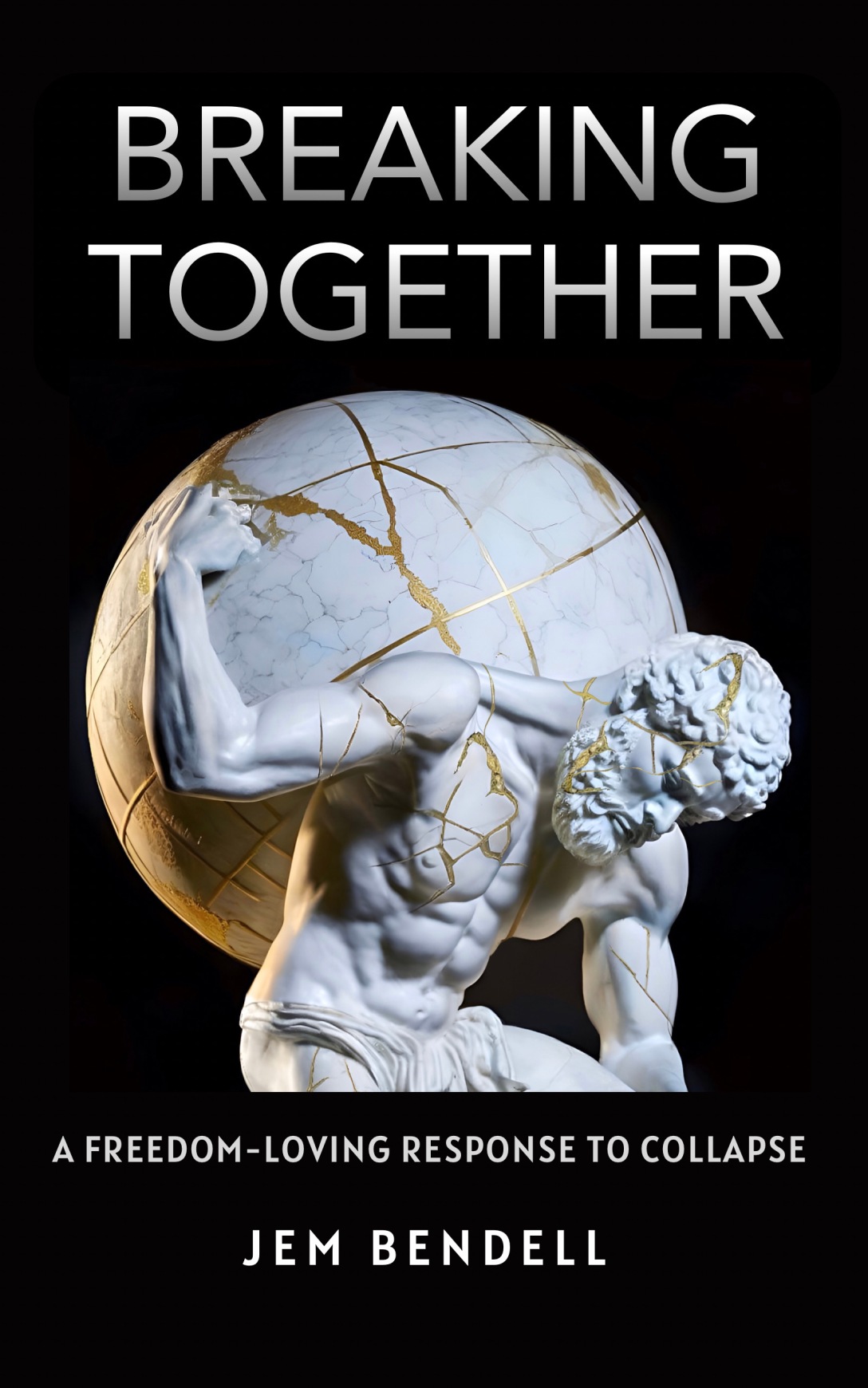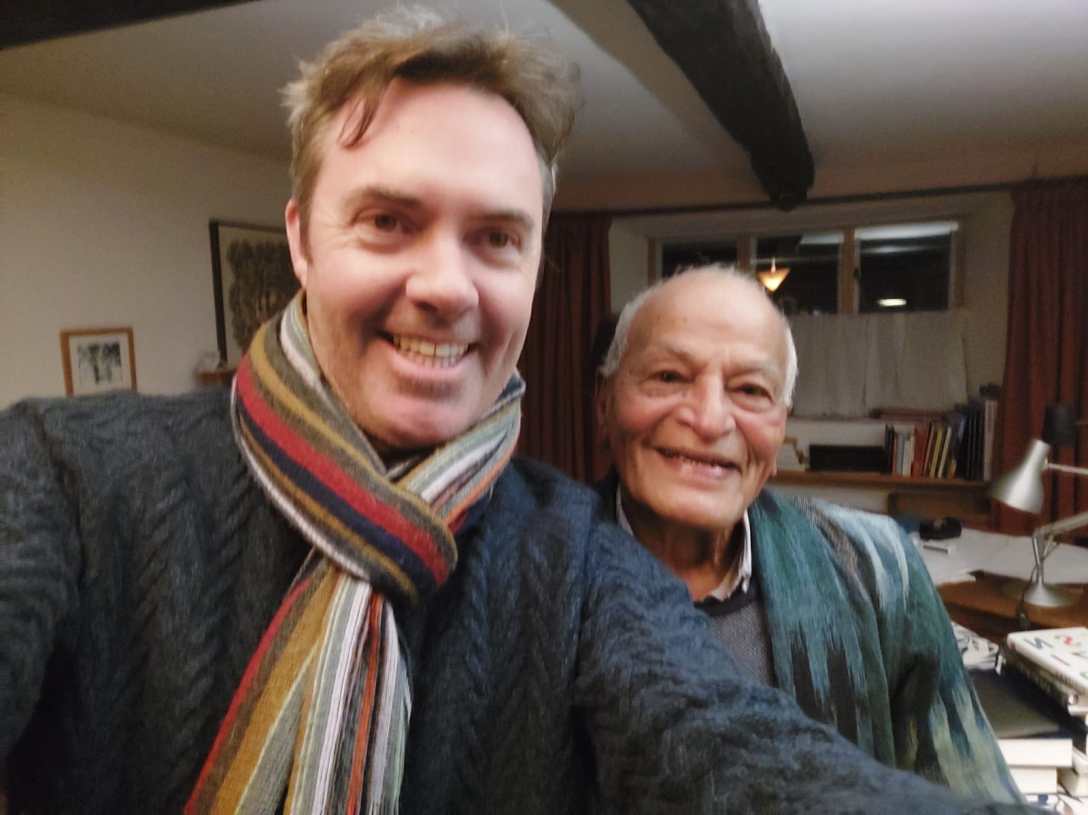The chatbots that use artificial intelligence (AI) are changing the way some people research and write. I have not yet used a chatbot to help me write any of my scholarly texts, which is probably why I remain rather verbose! The tech took off too late to affect my research process for Breaking Together, although I squeezed in a quote from a dialogue on freedom that my colleague Matthew had with ChatGPT. But there is an interesting new way that such chatbots can be used – as interfaces with specific publications, or collections of works. For instance, ChatPDF has been launched so people can interrogate academic articles with a chatbot. Some publishers are now looking at providing chatbot interfaces to some of their books. So when I heard that the awesome nonprofit Servicespace.org is helping to create chatbots for some authors, I decided to create one for people to engage with my new book. Consequently, JemBot was ‘born’.
News of JemBot within the Deep Adaptation Facebook group generated a range of reactions. Some people see AI as the latest creation of a doomed techno-obsessed culture. Some see it as endangering societal systems. They might be right, but that doesn’t mean we don’t deploy it for straightforward and positive reasons. As with all technology, the key issue is ownership, intention, use and governance.
Continue reading “Engage the book “Breaking Together” with an AI chatbot”









You must be logged in to post a comment.